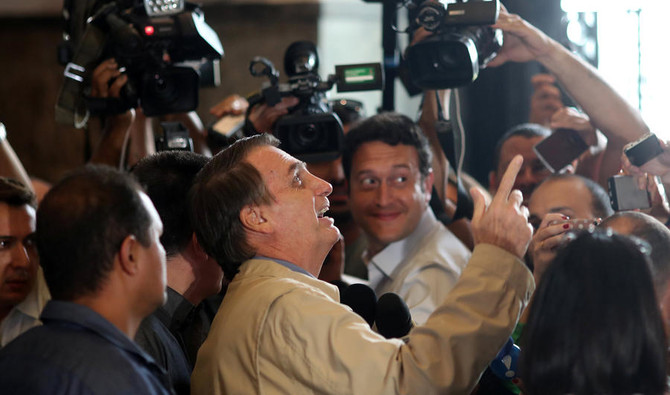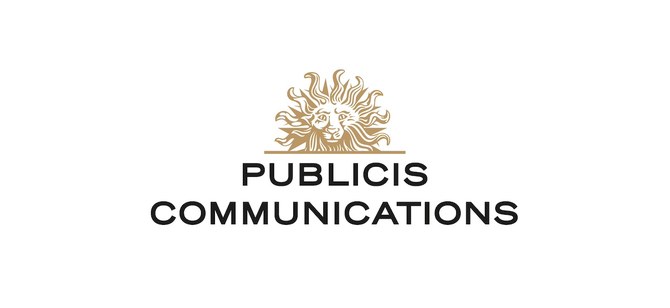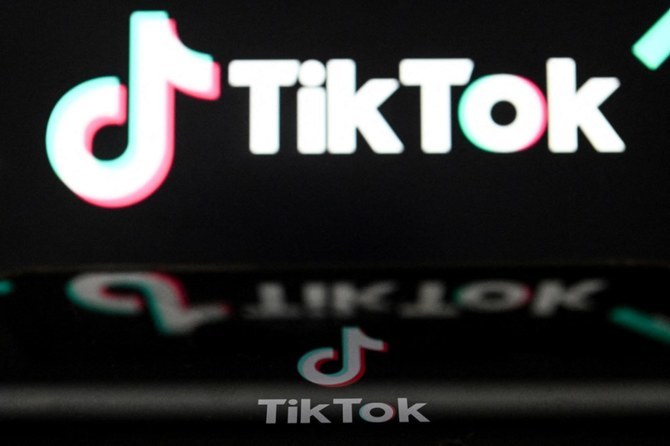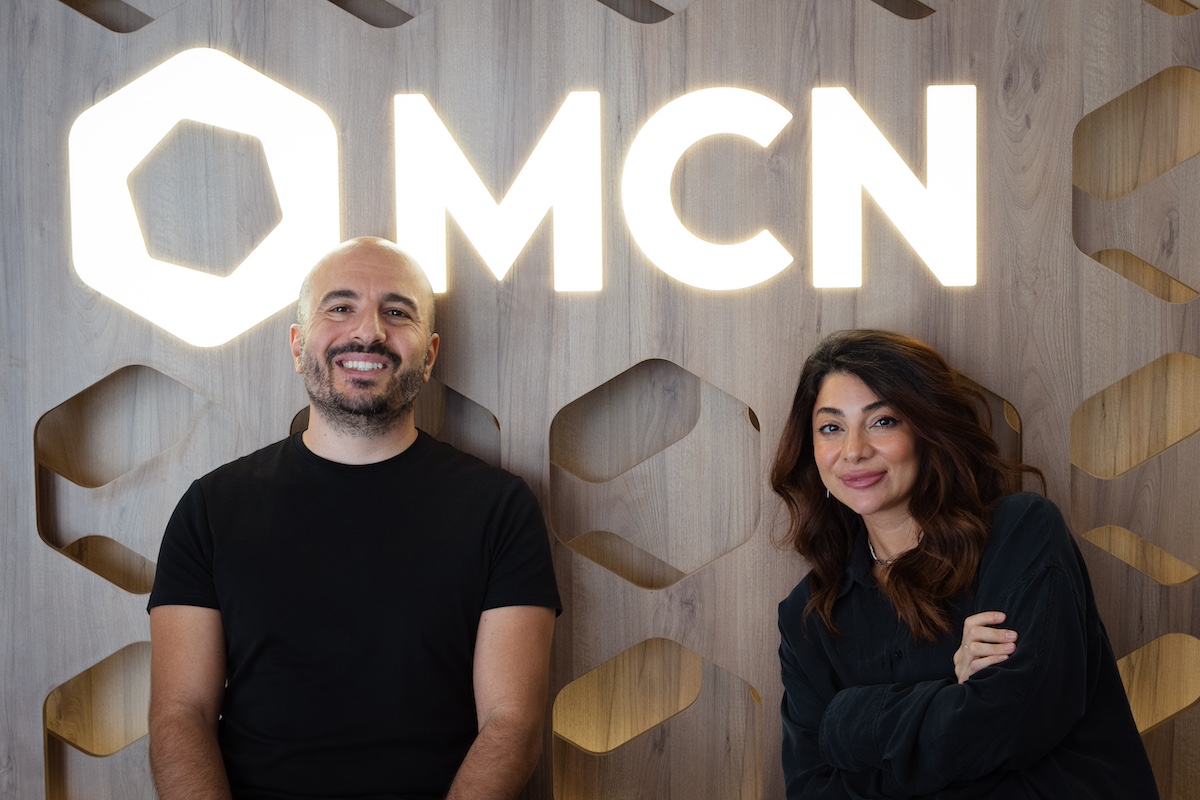SAO PAULO, Brazil: Allegations of a dirty tricks campaign on WhatsApp dominated Brazil’s presidential election race on Thursday, turning attention to social media manipulation following abuses uncovered in the last US election and Britain’s Brexit referendum.
Trailing leftist candidate Fernando Haddad accused the far-right frontrunner, Jair Bolsonaro, of “illegal” electoral tactics after a report that companies were poised to unleash a flood of WhatsApp messages attacking him and his Workers Party.
Bolsonaro denied the allegation, tweeting that the Haddad’s Workers Party “isn’t being hurt by fake news, but by the TRUTH.”
The exchange happened 10 days before a run-off election that polls predict Bolsonaro — a bluff, Internet-savvy, pro-gun polemicist often compared to US President Donald Trump — will likely win comfortably.
Ordinary Brazilians told AFP they got much of their election information through WhatsApp. They said some in their families or entourage swallowed some misinformation, but denied they themselves were being influenced.
“We get a lot of news, even false news, but some true, about politics but I don’t think it changes very much in terms of making decisions,” said Ana Clara Valle, a 27-year-old engineer in Rio.
She said she was voting for Bolsonaro because of his Catholic, pro-family stance, not because of any “extreme right” sensibility.
Andre de Souza, a 35-year-old lawyer leaning toward voting for Bolsonaro, said he receives around 500 WhatsApp messages a day for and against both candidates.
The rumors and false information “don’t make a difference to me,” he said, but added: “My mother received a WhatsApp message saying Bolsonaro was doing away with (mandatory) end-of-year salary payments, and she believed it!“
Support by companies
Haddad made his accusation after Brazil’s widest circulation newspaper, Folha de Sao Paulo, reported it had discovered contracts worth up to $3.2 million each for companies to send out bulk WhatsApp messages attacking the Workers Party.
“We have identified a campaign of slander and defamation via WhatsApp and, given the mass of messages, we know that there was dirty money behind it, because it wasn’t registered with the Supreme Electoral Tribunal,” Haddad told a media conference in Sao Paulo.
Bolsonaro’s lawyer, Tiago Ayres, told the financial daily Valor there was no evidence of any connection between the companies mentioned by Folha de Sao Paulo and Bolsonaro’s campaign.
The row shone a light on an issue that has become a pressing one in democracies: the organized abuse of social media to sway public opinion in countries.
Facebook — which owns WhatsApp, as well as popular image-based network Instagram — is the most prominent company that has come under scrutiny, though Twitter has also come in for criticism.
The platforms have made an effort to clean up who uses their services after evidence of Russian interference in the 2016 US election that saw Trump triumph, and accusations Facebook allowed user data to be harvested to bolster the campaign the same year for Britain to leave the European Union.
Facebook has also shut down disinformation pages traced to campaigns believed to have ties to Iran’s state-owned media and to Russian military intelligence services.
No foreign interference
There is no evidence of foreign interference online in Brazil’s election.
The director of major polling firm Datafolha, Mauro Paulinho, said on Twitter that his company had detected “some shifts” in public opinion just before the first round of the election on October 7, which Bolsonaro won handily.
“Technical and factual observations” were made, he said, without drawing any conclusions.
There are 120 million WhatsApp user accounts in Brazil, whose population is 210 million. The app works as a popular social network for friends, families and work colleagues.
Both Haddad and Bolsonaro are the subject of memes, cartoons and slogans circulating online in Brazil.
Haddad, a former education minister and ex-mayor of Sao Paulo, has repeatedly tried to draw Bolsonaro into televised debates on policies.
The leftist candidate has an academic background he believes would give him an advantage if the exchanges moved away from the one-line quips and insults that characterize most social media communications.
But Bolsonaro, who skipped early debates because he was recovering from a knife stab wound after being attacked by a lone assailant while campaigning last month, has thus far shown little inclination to go head-to-head with Haddad.
WhatsApp dirty tricks alleged in Brazil presidential race
WhatsApp dirty tricks alleged in Brazil presidential race

- Leftist candidate Fernando Haddad accused frontrunner Jair Bolsonaro of using WhatsApp to unleash fake news messages
- here are 120 million WhatsApp user accounts in Brazil, whose population is 210 million
Saudi Vision 2030 changed everything, says CEO of Publicis Communications KSA

- Adel Baraja brought over 2 decades of global experience
- Role includes overseeing the group’s Saudi operations, fostering talent
DUBAI: Advertising and marketing network Publicis Groupe appointed Adel Baraja as CEO of Publicis Communications Saudi Arabia in late February as part of its efforts to strengthen its presence in the Kingdom.
Publicis Communications is the creative communications arm of the network housing agencies such as Leo Burnett and Saatchi & Saatchi.
The appointment reinforced Publicis Groupe Middle East’s commitment to accelerating growth within Saudi Arabia while enhancing collaboration and expanding capabilities to deliver transformative work for clients.
Baraja brought with him 22 years of global advertising and brand-building experience.
He had started his professional life in engineering before realizing it was not for him.
He told Arab News: “I wanted to be with clients and that’s when I took my first pivot toward client management (and) sales, and I found my calling in marketing.”
He spent his early days working across advertising agencies in Germany, Spain, and Portugal, before returning to Saudi Arabia where he first interacted with Publicis Groupe. At the time he was hoping to find a job at Leo Burnett, but turned out to be a better fit for one of its clients, Saudi Telecom Company.
He then took a break from advertising agencies to work across industries in companies like Dow Chemical and Volkswagen.
And then, he said, came a “critical moment” in his career.
He added: “I never considered (working in) government before, but six months prior Vision 2030 was introduced, and that was everything.
“It was a meticulous plan — a road map towards something that I had never experienced or seen before. So, I got my first role in government in 2017.”
He led the newly established promotion and nation-branding sector at the Saudi Export Development Authority, growing the Saudi Made portfolio of companies from 20 to more than 2,000 companies during his tenure.
He also held the position of deputy minister of investment promotion at the Ministry of Investment before joining Publicis Groupe Middle East.
Communications had always been a “savvy topic” in the Kingdom, but it was heavily focused on and driven by the private sector, he said.
Vision 2030 changed it all, and “the government sector became a big spender in the communication sector and a driver to creativity,” he added.
With these changes, the demand for local talent is higher now than ever before, and fostering that talent is a strong priority for Baraja and Publicis Groupe.
Baraja is tasked with overseeing the integrated growth strategy of Publicis Communications in his new role, as well as working with educational institutions to empower Saudi youth for careers in advertising, media, and digital marketing.
He said that Bassel Kakish, CEO at Publicis Groupe Middle East and Turkiye, told him that the company needs to be developing and fostering local talent, hiring more locally, and ensuring gender equality, training more women in the advertising and creative industries.
Baraja said: “We are competing against other industries to get that share of talent, so we need to promote our industry and our company.”
Looking ahead, the company is investing in the future, which means increased focus on technology through acquisitions such as that of tech company Epsilon in 2020 and e-commerce company Corra in 2023.
Publicis last year announced the acquisition of a full stake in Publicis Sapient AI Labs, an artificial intelligence research and development joint venture launched in 2020 which aims to strengthen Publicis Sapient’s data and AI capabilities.
Baraja added: “That kind of investment shows the focus toward the future and the transformation of the business.”
There is a lot of discussion around AI replacing marketing and agencies, he said, but he believes: “We are well equipped to address this challenge and to prove that we can deliver even better communications, and better and well-designed campaigns and media performances.”
TikTok CEO to fight US ban law

WASHINGTON: TikTok’s chief executive said on Wednesday that the company expects to win a legal challenge to block legislation signed into law by US President Joe Biden that he said would ban the popular short video app used by 170 million Americans.
“Rest assured — we aren’t going anywhere,” CEO Shou Zi Chew said in a video posted moments after Biden signed the bill that gives China-based ByteDance 270 days to divest TikTok’s US assets or face a ban. “The facts and the Constitution are on our side and we expect to prevail again.”
Biden’s signing sets a Jan. 19 deadline for a sale — one day before his term is set to expire — but he could extend the deadline by three months if he determines ByteDance is making progress. Biden is seeking a second term against former President Donald Trump.
In 2020, Trump was blocked by the courts in his bid to ban TikTok and Chinese-owned WeChat, a unit of Tencent, in the United States.
Chew added: “Make no mistake — this is a ban on TikTok.” He emphasized that TikTok would continue to operate as the company challenges the restrictions.
Driven by widespread worries among US lawmakers that China could access Americans’ data or surveil them with the app, the bill was overwhelmingly passed late on Tuesday by the US Senate. The US House of Representatives approved it on Saturday.
The four-year battle over TikTok is a significant front in a war over the internet and technology between Washington and Beijing. Last week, Apple said China had ordered it to remove Meta Platforms’ WhatsApp and Threads from its App Store in China over Chinese national security concerns.
TikTok is set to challenge the bill on First Amendment grounds and TikTok users are also expected to again take legal action. A US judge in Montana in November blocked a state ban on TikTok, citing free-speech grounds.
The American Civil Liberties Union said banning or requiring divestiture of TikTok would “set an alarming global precedent for excessive government control over social media platforms.”
However, the new legislation is likely to give the Biden administration a stronger legal footing to ban TikTok if ByteDance fails to divest the app, experts say.
If ByteDance failed to divest TikTok, app stores operated by Apple, Alphabet’s Google and others could not legally offer TikTok or provide web hosting services to ByteDance-controlled applications or TikTok’s website.
The bill would also give the White House new tools to ban or force the sale of other foreign-owned apps it deems to be security threats.
Democratic Senator Ron Wyden said he was concerned the bill “provides broad authority that could be abused by a future administration to violate Americans’ First Amendment rights.”
Republican presidential candidate Donald Trump said on Monday that President Joe Biden was “pushing” for a ban on TikTok and would be the one responsible if a ban were imposed, urging voters to take notice.
Biden’s re-election campaign plans to continue using TikTok, a campaign official said on Wednesday. Trump’s campaign has not joined TikTok.
Biden signed legislation in late 2022 that barred US government employees from using TikTok on government phones.
Advertising network MCN launches influencer practice in Mideast

DUBAI: Regional advertising group Middle East Communications Network has launched a dedicated influencer practice in the Middle East, North Africa and Turkiye to help clients across the group’s agencies, including FP7McCann, MullenLowe, UM, and Weber Shandwick.
Rami Gholmieh has been appointed to lead the practice as the regional director of influencer marketing, while Razan Zahra will serve as director of influencer relations.
“At the heart of our influence practice lies a commitment to two fundamental principles: effectiveness and efficiency,” Gholmieh told Arab News.
“The challenge lies in creating balance between leveraging channels to encourage content sharing and investing into paid promotions. Ultimately it requires a nuanced approach, tailored to the specific objectives and audience dynamics of respective brands.”
The practice takes a “de-siloed” approach to help agency brands across the group deliver influencer marketing campaigns, according to MCN.

The influencer marketing industry is rapidly growing, with 76.9 percent of marketers saying influencer marketing is a top priority, and 46.2 percent increasing budgets last year, according to a 2023 survey.
The growth and evolution of the industry is partly the reason why MCN chose to launch a dedicated practice now despite influencer marketing having been around for years.
With “the evolving dynamics of consumer engagement and brand interactions combined with new platforms and changing consumption patterns, a dedicated and fully integrated practice within the broader ecosystem is required to create tailor-made solutions for our clients,” the company said.
As the digital and social media landscape becomes more complex, MCN’s influencer practice aims to help brands by “understanding the social voice, (acquiring) knowledge of real-time cultural insights, (and) possessing platform expertise, the ability to co-create, and journey awareness,” concluded Gholmieh.
Eurovision Song Contest host Sweden braces for anti-Israel protests

- Event organizer European Broadcasting Union has resisted calls for Israel to be excluded due to its war in Gaza
- Contest will take place in Malmo from 7-11 May and is expected to draw 100,000 visitors
MALMO: Sweden said it plans to host a dazzling Eurovision Song Contest, watched by 200 million people worldwide, but visitors face heightened security amid planned protests over Israel’s participation and a new geo-political backdrop since Sweden joined NATO.
The contest, the world’s biggest of its kind, takes place in Malmo from 7-11 May and is expected to draw 100,000 visitors to Sweden’s third-largest city which has a large Muslim population. Organizers plan a special tribute to Swedish pop group ABBA, who won Eurovision 50 years ago this year. The European Broadcasting Union (EBU), which organizes the contest, has resisted calls for Israel to be excluded due to its war in Gaza. Controversy over the conflict has already hit various cultural events across Europe. Much focus is expected to be on Israeli contestant Eden Golan and her song Hurricane, as multiple large pro-Palestinian protests are planned outside the venue in Malmo. Israel was permitted to compete after it agreed to modify the lyrics of its original song “October Rain” which the EBU said made reference to the Oct. 7 Hamas onslaught in Israel.
EBU brands Eurovision a non-political event and insists that the contest is between public service broadcasters, not governments.
Still, it banned Russian in 2022 from Eurovision after several European public broadcasters called for the country to be expelled following its invasion of Ukraine.
Sweden is hosting the annual competition for the seventh time, after Swedish singer Loreen won last year’s competition in Liverpool with her song “Tattoo.”
Ebba Adielsson, executive Eurovision producer from Swedish broadcaster SVT, promised “some smashing shows.” She ruled out an ABBA reunion but said the event would celebrate the group’s 1974 win with their song “Waterloo,” a victory that launched the band onto the international stage.
Swiss contestant Nemo is the favorite to win this year, according to bookmakers, followed by Croatia’s Baby Lasagna, Joost Klein of the Netherlands, and Italy’s Angelina Mango.
’HIGH THREAT-LEVEL’
Visitors from 89 countries expected in Malmo will have to pass through airport-like security checks when entering venues around the city.
“There’s a high threat level combined with a lot of people,” said Per-Erik Ebbestahl, Malmo’s security director.
Organizers face the risk of protests escalating into violence, heightened terror threats in the country, and increased tensions with Russia after Sweden’s NATO membership.
In central Malmo there are official posters for Eurovision but also protest banners replicating the same colorful design, with the word Eurovision replaced by ‘genocide’ and the words: “Israel out of Eurovision or Eurovision out of Malmo.”
Orwa Kadoura, a Palestinian living in Malmo and one of the organizers of the protests, said the Israeli delegation was “here to represent Israel and their government, which is committing acts of genocide right now.”
Israel rejects any accusation of genocide in Gaza during its war against Hamas.
Police say security will be tighter compared with when Sweden last hosted the event in 2016.
“The situation around the world is complex, and also the security for Sweden is different,” said Petra Stenkula, Malmo police chief. “We are ready for anything that can happen.”
Sweden joined NATO in March, two years after Russia’s invasion of Ukraine forced it to rethink its national security policy. Russia has threatened to take unspecified “political and military-technical counter-measures” in response.
Gang crime in Sweden’s biggest cities, including Malmo, has also been a problem for years, fueled by the drug trade.
Eurovision begins on May 7 with the first semifinal, followed by a second semifinal two days later and the final on Sat. May 11.
Sky News report reveals Israel’s involvement in mass grave in Gaza

- Evidence suggests IDF bulldozed graves after taking control
LONDON: An investigation by Sky News suggests Israel is likely responsible for the mass grave discovered at a hospital in Gaza’s southern city of Khan Younis over the weekend.
Local authorities reported uncovering 283 bodies in the mass grave within the courtyard of Nasser Hospital after the Israel Defense Forces withdrew from the area on April 7.
Israel’s military dismissed claims of burying bodies there as “baseless” but confirmed that it had “examined” some bodies during a two-week operation at the hospital.
Analysis of satellite imagery and social media indicates that Palestinians buried their dead in mass graves during Israel’s siege of Nasser Hospital and that the IDF bulldozed these graves after taking control.
Prior to the Israeli army’s takeover of the hospital compound in its full-scale operation in February, staff had been forced to bury hundreds of bodies in makeshift graves near the hospital’s main building due to the impossibility of reaching nearby cemeteries.
The IDF began exhuming and examining bodies buried in the compound based on intelligence sources indicating the presence of bodies belonging to Israeli hostages.
The army said the examination “was carried out respectfully while maintaining the dignity of the deceased.
“Bodies examined, which did not belong to Israeli hostages, were returned to their place,” the IDF added.
However, Sky News’ Data and Forensic team discovered evidence indicating extensive damage to the sites caused by the army’s examination.
Footage uploaded a few days after the IDF left Nasser Hospital showed significant destruction at the southeastern corner of the complex, where some of the mass graves had been dug.
Another video revealed that bulldozer operations in the area caused an arm to be visible, partially buried in a mound of earth.
Satellite images confirmed that the damage occurred while Israeli forces were occupying the complex between Feb. 15 and 22.
The UN’s human rights chief expressed horror at the discovery and announced an investigation into claims that some of the bodies had their hands bound and were stripped of clothing.
Earlier last week, other mass graves were found at Al-Shifa, the largest medical facility in the coastal enclave.
The discovery led the Hamas-run government to accuse Israel of digging the graves “to hide its crimes.”
Since the conflict began, with retaliatory acts toward Hamas fighters killing and kidnapping 1,200 Israelis, Tel Aviv has launched a bloody, full-scale operation into the Gaza Strip that has resulted in the deaths of over 34,000 people, mostly women and children.



















